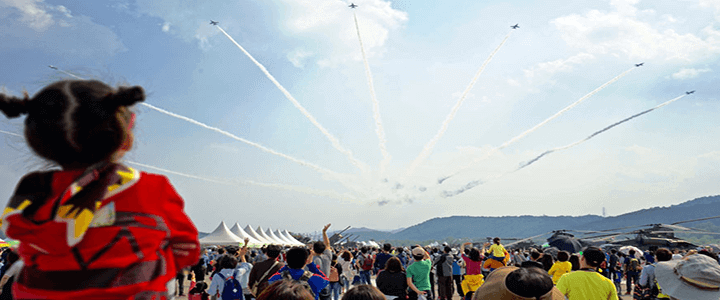This is a football-free zone. If you spent Sunday watching CNN, you’d thing the greatest threat to national security was the president’s Tweets abut NFL players taking a knee during the playing of the Star Spangled Banner. But covering political fallout is much easier than covering potential nuclear fallout, so that’s what they’re feeding you.
But you read Daily Intel, where we cover the national security issues that affect your life far more than any rich athlete’s political protest. Issues like the continued war of words between Washington and Pyongyang.
did they or didn’t they?
Early Saturday morning, seismographs around the world picked up an earthquake centered near the site of North Korea’s nuclear tests. Measuring between 3.2 and 3.5 on the Richter scale, the tremor was smaller than that caused by any of the DPRK’s previous nuclear tests, even its initial one in 2006. That didn’t stop the speculation that the North had conducted another test detonation.
Given the relatively small size of the tremor, if it was indeed a test, it would be a failed one — what nuclear scientists call a “fizzle.” North Korea’s own inaugural nuclear detonation was itself a fizzle, generating an explosive force of only around half a kiloton, rather than the expected four kilotons. But even that nuclear fizzle generated a shockwave the equivalent of a magnitude 4.2 earthquake. For this latest activity to have been a nuclear test, the relatively small size of the tremor would likely make it even more of a failure than the initial test.
Despite the initial disagreement over the nature of the seismic event among agencies around the world, it is more likely that that the earthquake was the result of a landslide near a previous test site, the collapse of a nuclear test tunnel, or a natural quake resulting from stress created by previous tests.
Given the heat and content of the recent rhetoric, and insults, flying back and forth across the Pacific Ocean, another underground nuclear test at this point doesn’t make much sense.
will the dprk conduct an atmospheric test?
After President Trump’s speech at the United Nations, in which he threatened the total destruction of North Korea if it were to attack the United States, North Korean dictator Kim Jong-un responded with a first: he released a statement to the world in his own name. He also did so in the first person, which analysts considered to be unusual.
After the expected bluster, Kim closed his statement by saying “I will surely and definitely tame the mentally deranged U.S. dotard with fire,” employing a little-used word for someone descending into senility. On Friday at the UN, the North Korean foreign minister, Ri Yong-ho escalated the situation with a bold threat. Asked about the ways the North might react to Trump’s speech, he told reporters, “I think that it could be an H-bomb test at an unprecedented level, perhaps over the Pacific.”
That toothpaste isn’t going back in the tube easily. For that reason alone, the north won’t conduct any missile tests for the moment. Whether he was speaking extemporaneously, or was delivering the official line of the DPRK government, the prospect of an atmospheric nuclear test is something so shockingly bold that Kim can’t do anything for a while.
Either he follows through on that threat, or faces questions about why he didn’t follow through.
The world’s original nuclear powers banned above-ground testing in 1963 for good reason: the fallout from them kills people. The last above-ground nuclear test was performed in China in 1980. An article in the Times of London this weekend asserted that an estimated 430,000 people died of cancer from the atmospheric tests conducted up through the signing of the Limited Nuclear Test Ban Treaty. Then there’s the likelihood of damage due to electromagnetic pulse.
Kim knows such a launch and test would likely be a bridge too far for Trump, if not the rest of the world. So all the heated talk in the past week may have just cooled things off for a while… at least long enough for Kim to save face for not following through on Ri’s bluster.




